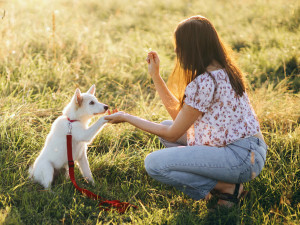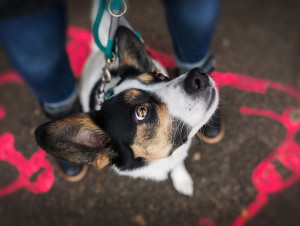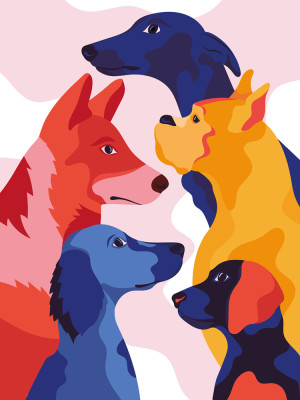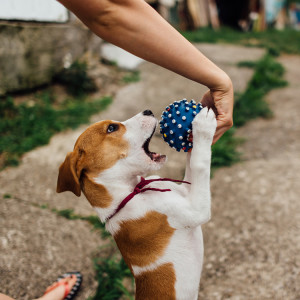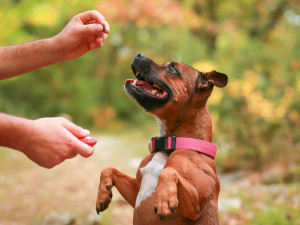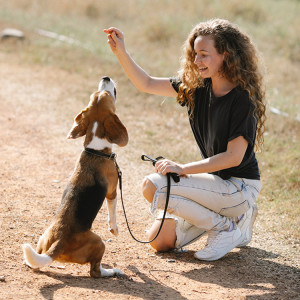Dogs Learn More If You Pet or Praise Them (Instead of Scolding), New Study Says
Yet another reason positive reinforcement is the way to go.
When it comes to training your pup, you probably already know that treats are one of the most effective ways to tell them they did a good job (and should do whatever they just did again). But if you want your pup to learn most effectively, treats alone aren’t the solution. A new studyopens in new tab published in Scientific Reports finds that as much as your pup wants a snack, they equally value your positive emotional reinforcement.
Recently, researchers set out to measure how emotions influence learning in pups and found that dogs who received pets and praise in addition to treats performed better than pups who received treats and light reprimanding. In other words, keep the treats coming — but if you want your dog to be stress-free and in peak performance, they’ll need tons of chin scratches and “good dog” affirmations, too.
The experiment
During the experiment, trainers taught new cue words to pups for tricks they already knew; instead of being given the cues in Hungarian, which their pet parents speak, the dogs were given cues in English. Two different training styles were given to each pup: “permissive” and “controlling.”
During permissive training sessions, dogs who succeeded were given praise, pets, and treats. During controlling sessions, dogs who succeeded were given treats (without praise and pets) and dogs who failed were softly scolded with phrases such as “No,” or “Not good,” in a firm, but not threatening, voice.
How much do you spend on your pet per year?
After each separate training session, dogs napped in a lab, where they were given EEG scans to analyze their memory functions. Performance was retested after sleep.
The researchers found that the controlling training method caused pups stress and increased the amount they slept. In particular, dogs who were scolded showed the stress-related behavior of seeking proximity to their pet parent. Previous studiesopens in new tab have found that stress can have a negative impact on a dog’s ability to learn.
All dogs performed better during their first training session than the second, regardless of the method applied. “The reason for the order effect may be the well-known phenomenon in the literature that information learned first is often easier to remember than what is learned later in a similar context,” per Phys.orgopens in new tab.
There was one difference, though: Dogs who were first exposed to controlling sessions and later exposed to permissive sessions showed much greater pre- to post-sleep improvement during their second sessions. Researchers hypothesize that this may be because the pups experienced a more positive training environment than they expected.
“Our results indicate a central role of positive reinforcement both in enhancing their performance and welfare,” wrote the study’s lead author, Vivien Reicher. Further research is needed to delve into the impact of positive reinforcement on learning, but these results suggest that giving pets and praise to pups can significantly lower stress and potentially improve their memory — so, no need to play the stoic trainer. Go ahead and smother your pup in pets; it’s good for everyone.

